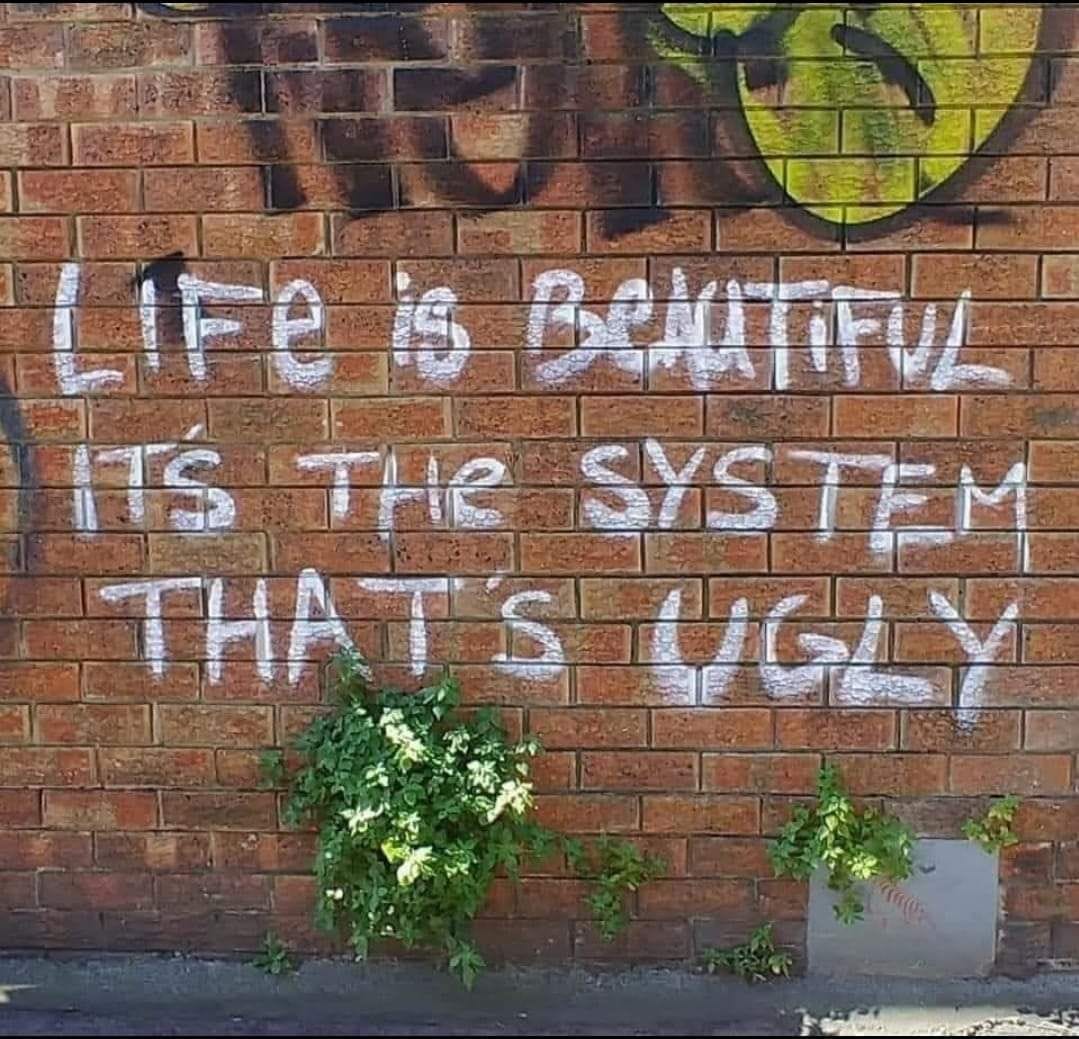What the actual WHO is going on?
The People don't need a #PandemicAccord - the WHO tries to force one anyway. Take Action. Let's #StopTheAccord
Imagine domestic violence survivors objecting to a piece of new or existing legislation because they see that it is or that it can be harmful to them. Now imagine the government of your country enforcing that legislation anyway, because it stands to gain power and money through the negotiation and implementation thereof. While telling you it cares for you and your rights. The WHO is trying to do exactly that.
First, a tip. You may be familiar with the phrase #StopTheTreaty. That hashtag went viral. The WCH and its partners reached 415 million people with it, in 7 days. My mind still marvels at what we the people did, and can do. So, to deflect attention from that popular hashtag, the WHO’s PR team decided to change the document title from treaty to accord. So now we have a new hashtag call to action: #StopTheAccord
NB: A treaty can be called a convention, protocol or accord, although each does have its own, sometimes overlapping, definition. Accord means agreement on concurrence of opinion, will or action, whereas treaty means a binding agreement - when canvassed, consented to, voted on, and ratified. While some definitions imply that a treaty is binding while an accord is is not, it is the substance of the document that makes the difference. In law, the key question is, what is the intention? Moreover, what decision-making authority do World Health Assembly national delegates have to sign agreements for sovereign men, women and children?
WHO says your public participation is not that important
Second, a key update. A new and not shocking development has occurred with regards to the public participation process on the #PandemicAccord. Despite promising a hearing June 16th and 17th, like we had in April (again, only due to powerful global activism/advocacy), WHO has again broken its commitment to the people, and intends on drafting the #PandemicAccord without a second round of public comments.
How do we know this? The INB will be meeting this month to discuss and possibly draft the #PandemicAccord ahead of their 1 August deadline. In other words, there is time for the INB to meet, but there is simply no time for a second round of public comments on #PandemicAccord. Should we give them, the INB of the WHO that is, the benefit of the doubt, given what is at stake for us here?
So much for the inclusivity and transparency that member states specifically insisted on at the World Health Assembly 75. And so much for the WHO respecting human rights and sovereignty, as Tedros mentioned in the pre #WHA75 press briefing, in which he called us a minority. Properly canvassed, I can confidently assure you that we are the sovereign majority.
Here is summary of some of the over 36 000 #PandemicAccord comments WHO was sent during round 1 in April, shared from my indomitable friend and ally James Roguski’s Substack. I also want to highlight the incredible persistence of Costa Rican civil rights education and advocacy group Interests of Justice, a partner at the World Council for Health:
Below is a highlights summary of the written contributions to the first round of public hearings which were held April 12-13, 2022. You can use them when writing to the WHO’s INB:
There were 36,294 written submissions made via the dedicated online portal on the WHO website during the public hearings. In due course, those written submissions will be uploaded and archived on the WHO public hearings webpage.
The majority of written contributions proposed that no international instrument should be established.
There were differences in opinions as to whether a new international instrument on pandemic prevention, preparedness and response was required, and if so, its scope and nature.
A number of submissions referred to respect for national autonomy and sovereignty, noting that subnational and cultural bodies, and local health entities were better placed to make health decisions at the national level. Such a focus on sovereignty was justified by the differences in national health systems.
The majority of submissions requested that human rights be respected in the process of drafting and negotiating a convention, agreement or other international instrument, including but not limited to the right to bodily autonomy informed by consent, the freedom of information, the freedom from discrimination, and the freedom to choose medical interventions.
Several submissions referred to international instruments such as the Nuremberg Code, the Universal Declaration of Human Rights, the Declaration of Helsinki, the Belmont Report, and the Oviedo Convention and its Protocols.
There were suggestions that the limitation of human rights should be legally justified and conform to the Siracusa Principles on the Limitation and Derogation Provisions in the International Covenant on Civil and Political Rights.
Several submissions suggested that previous definitions of the term “pandemic” should be applied and that the words “with enormous numbers of deaths and illness” should be included. Those suggestions also emphasized that the definition of what constituted a pandemic should be determined by medical professionals, that the medical integrity of health care professionals should be upheld, and that the formulation of infection prevention and control guidelines should uphold the application of the precautionary principle to safeguard health workers.
Furthermore, there was a recognition of the social and economic consequences of a pandemic, including the need to mitigate the adverse economic impacts.
Transparency and accountability were recurrent themes in the written submissions.
Many contributions underscored the importance of using the WHO Framework Convention on Tobacco Control as a model for developing a comprehensive accountability structure, notably on conflict of interest, liability, participation of nongovernmental organizations and other members of civil society, and legally binding instruments on business and human rights.
A large number of submissions noted the benefits of people being able to vote on interventions to be adopted by their respective governments, in accordance with the provisions of the WHO Constitution.
They also stressed that feedback mechanisms should be set up and that dialogue and debate concerning proposed interventions should be incorporated into that process.
A number of submissions indicated that WHO should be exclusively funded by governments to the exclusion of private donors
Some submissions also recommended that WHO should disclose sources of funding, especially during a pandemic.
Several submissions stressed the importance of national sovereignty, with Member States having sole authority to make decisions on whether to adopt recommendations made by WHO.
Some submissions placed great emphasis on the amount of scientific data and expertise that would be made available to the public. They called for evidence-based decision-making by WHO for medical and non-pharmaceutical interventions as well as the establishment of a repository of scientific knowledge.
Several submissions also suggested that a steering committee to review WHO’s decision-making process should be set up, composed solely of medically trained professionals.
A number of submissions highlighted the importance of expressly including an obligation for pharmaceutical companies to provide medicines regardless of patent limitations.
They also suggested that action should be taken to: effectively monitor systems for the use of novel therapeutics, publish data from all clinical studies, and widely share vaccine information.
To watch the verbal representations on the #PandemicAccord in April, go here: https://inb.who.int/
WHAT WE CAN DO TO #StopTheAccord: CONTACT EVERY MEMBER OF THE “INTERGOVERNMENTAL NEGOTIATING BODY”
Ms. Precious Matsoso (South Africa) CONTACT: MatsosoP@who.int
Mr. Roland Driece (the Netherlands) CONTACT: DrieceR@who.int Linkedin
Ambassador Tovar da Silva Nunes (Brazil) CONTACT: DaSilvaNunesT@who.int Linkedin
Mr. Ahmed Salama Soliman (Egypt) CONTACT: SolimanS@who.int
Mr. Kazuho Taguchi (Japan) CONTACT: TaguchiK@who.int
Dr. Viroj Tangcharoensathien (Thailand) CONTACT: TangcharoensathienV@who.int
Dr Viroj Tangcharoensathien:
International Health Policy Programme,
3rd Floor, National Security Reform Office Building,
oi Sataranasuk 6, Tiwanon Road, Nontaburi 11000, Thailand.
Email: viroj@ihpp.thaigov.net
http://www.crehs.lshtm.ac.uk/contact.html
And the Secretariat for the INB
Ms Jane Ellison, Executive Director, Governance and External Relations CONTACT: EllisonJ@who.int Twitter: @JaneEllison
Dr Jaouad Mahjour, Assistant Director General, Emergency Preparedness CONTACT: MahjourJ@who.int
Dr Timothy Armstrong, Director Governing Bodies CONTACT: ArmstrongT@who.int
Mr Steven Solomon, Principal Legal Officer CONTACT: SolomonS@who.int
Ms Gina Vea, Unit Head, Governance Unit CONTACT: VeaG@who.int Linkedin
Ms Anne Huvos, Unit Head, Pandemic Influenza Preparedness CONTACT: HuvosA@who.int
Dr Olla Shideed, Executive Officer, Emergency Preparedness CONTACT: ShideedO@who.int Linkedin
Mrs Paidamoyo Takaenzana, External Relations Officer, Governance Unit CONTACT: TakaenzanaP@who.int
Dr Claudia Nannini, Legal Officer CONTACT: NanniniC@who.int Linkedin
Mr Kenneth Piercy, Senior Legal Officer CONTACT: PiercyK@who.int Linkedin
Dr Carmen Savelli, External Relations Officer, Governance Unit CONTACT: SavelliC@who.int Linkedin
Call To Action - Our Time to Shine
Write to the WHO’s INB (Intergovernmental Governing Body) to:
A) Record your opposition to their decision to not host multiple rounds of public comments on the new #PandemicAccord. By now, they should have made a participation plan public,
B) Record your opposition to the new #PandemicAccord based on the WHO's failures during the C19 chapter, and the fact that a #PandemicAccord is neither necessary, nor reasonable, or proportionate. Moreover, while global community collaboration is helpful, the WHO, given the fact that it is dominated by private investors, cannot be trusted to lead the way, or make any decisions about health.
Contact politicians, government ministers, activists, journalists, lawyers and credible influencers in your country to:
A) Raise awareness about the risks of the #PandemicAccord [and the IHR 2005 amendments]
B) Insist on a public participation process on anything related to WHO/WEF/WTO
Work on becoming healthy, and co-creating new, alternative or parallel pathways to health that make the WHO/WEF irrelevant. This includes joining or supporting World Council for Health, and our amazing partners and allies, all of us committed to health, autonomy, freedom and sovereignty.
Please sign this important declaration: https://standforhealthfreedom.com/action/who
JUST REMEMBER, DEAR FRIENDS AND ALLIES:You can also find my work on www.TrialSiteNews.com
Telegram: t.me/SPMMedia & Twitter: @ShabnamPalesaMo










Thank you for outlining this clear and inspiring call to action, Shabnam! I have added this to my growing list of action steps after my letter objecting to the IHR amendments:
• “Letter to the US HHS Office of Global Affairs” (https://margaretannaalice.substack.com/p/letter-to-the-us-hhs-office-of-global)
I also added this article to the list of resources.
Have you seen this post from Interest of Justice in which they share a link (https://interestofjustice.org/) to their Notice of Claim?
• “We knew The HHS & WHO were DOOMED to failure and would not achieve the proposed IHR Amendments” (https://interestofjustice.substack.com/p/we-knew-the-hhs-and-who-was-doomed)
Should we use a different hashtag like #StopTheAccord, or should we keep using #StopTheTreaty?
Here’s to the power of the people! 🙌
It doesn’t matter what they call it. The US government doesn’t have the right to usurp the constitution by turning authority of the US over to any body outside the nation, voted on or not.